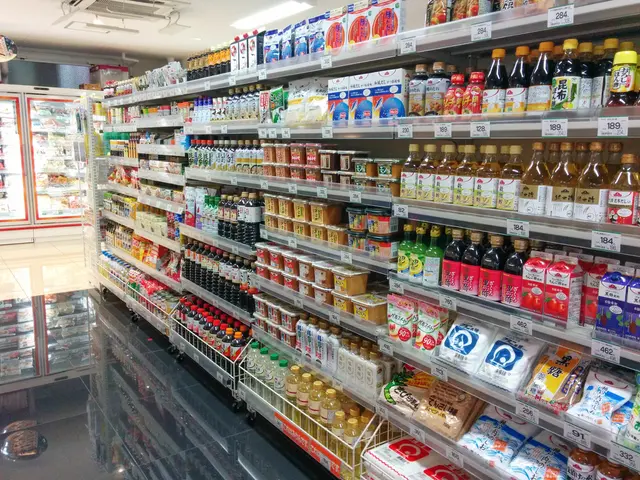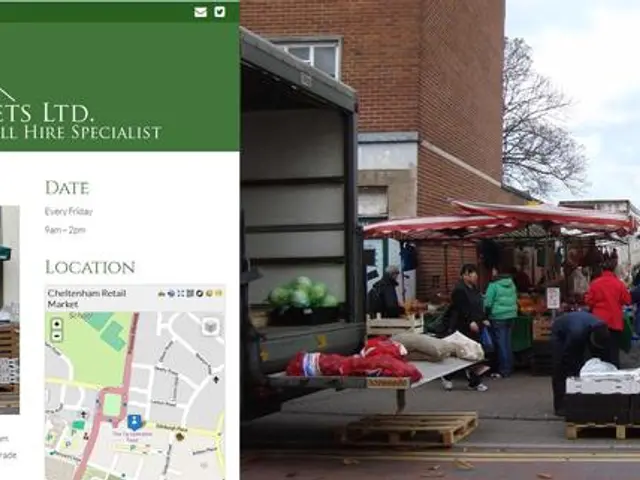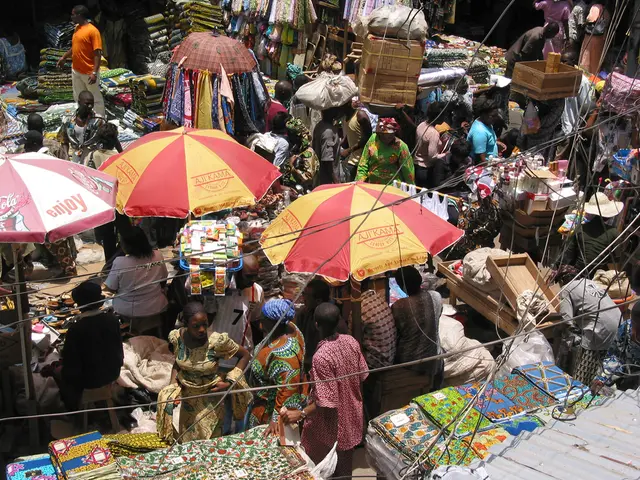Romania's economy modestly expands at a rate of 0.3%, stoking concerns about an impending economic downturn
Romania's economy grew modestly in the first half of 2025, with a 0.3% gross domestic product (GDP) expansion, according to official data. However, this growth, when adjusted for seasonal variations, was more robust at 1.4%. Yet, these figures have raised concerns about the sustainability of growth and economic stability in the near future.
The central bank of Romania, BNR, has sharply revised its inflation forecast for 2025, raising the year-end estimate from 4.6% to 8.8%. This significant increase in inflation, potentially reaching 9.6% or 9.7% by September, according to Governor Mugur Isașcu, is causing financial stress for businesses and consumers.
One of the main factors contributing to these concerns is the increase in taxes, including Value-Added Tax (VAT) hikes and excise duties, implemented as part of fiscal consolidation efforts. The VAT rate, for instance, has been raised from 19% to 21%. These tax increases have led to a drop in sales across many sectors, such as trade, real estate, and goods distribution, increasing the risk of over 100,000 companies potentially going insolvent.
Other challenges include financial blockage and disintermediation phenomena that impair normal financial flows in the economy, concerns about whether public sector tax revenue in the latter half of the year will meet expectations, and high budget deficit levels limiting the government's borrowing capacity.
Alexandru Nazare, the Romanian finance minister, has stated that the government must be prepared for a potential recession. He also mentioned the need to anticipate a potential recession, a sentiment echoed by the World Bank, which estimated that Romania's economy would grow by 1.3% in 2025. However, the World Bank's estimates do not account for the potential need to anticipate a recession or the impact of the increased taxation by the Romanian government.
Despite these challenges, some companies have adapted to the new economic realities. In the second quarter of 2025, the GDP rose by 2.1% compared to the same quarter of 2024. However, this increase was only 1.2% compared to the previous quarter.
In a bid to avoid a recession, Mugur Isașcu suggests that Romania can increase its absorption of European funds. Yet, he did not mention any specific measures taken by the government to address the potential recession.
The data published by the National Institute of Statistics (INS) on August 14, 2025, indicates a possible recession, with the economy showing weak growth. The World Bank's estimates for 2026 also suggest a similar low rate. However, these estimates do not consider the possibility of inflation exceeding 9% or the impact of the increased taxation by the Romanian government.
In conclusion, Romania's economy is facing a challenging period, with inflation, tax hikes, and weak growth raising concerns about a potential recession. The government and the central bank will need to carefully navigate these challenges to ensure economic stability in the near future.
- The sharp increase in inflation, as predicted by the central bank's governor Mugur Isașcu, has created financial stress for businesses and consumers, adding to the concerns about the potential for a recession in Romania's economy.
- The Romanian finance minister, Alexandru Nazare, has emphasized the need for the government to be prepared for a potential recession and to anticipate its impact, as a sluggish economy, high inflation, and increased taxation may lead to a difficult financial period ahead.




